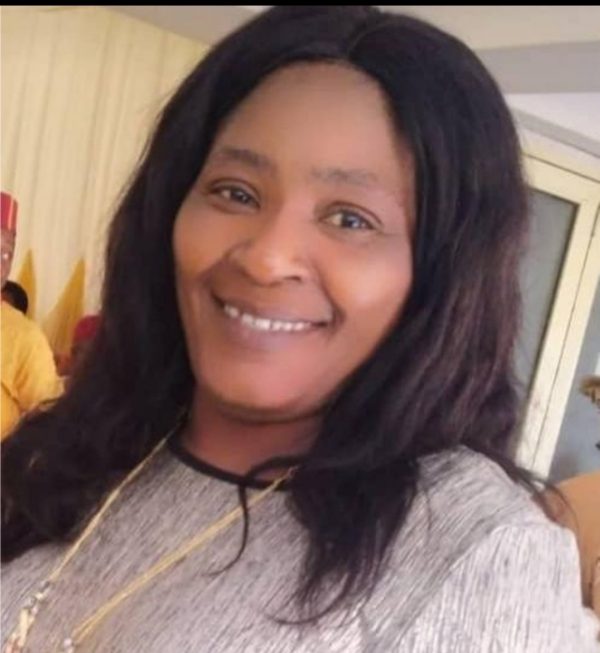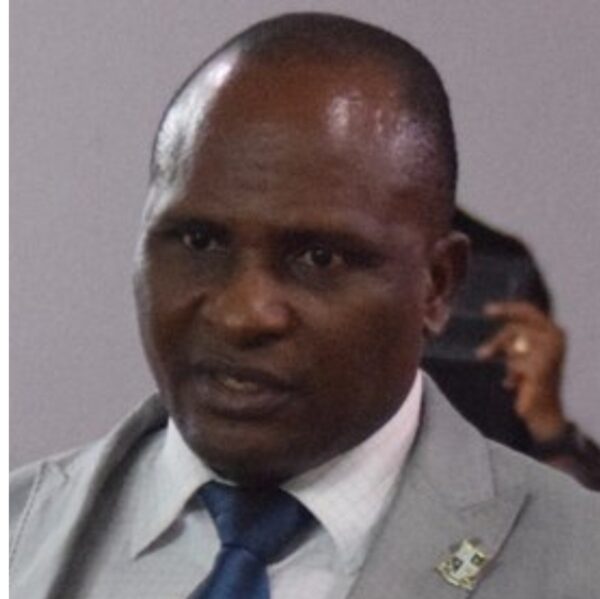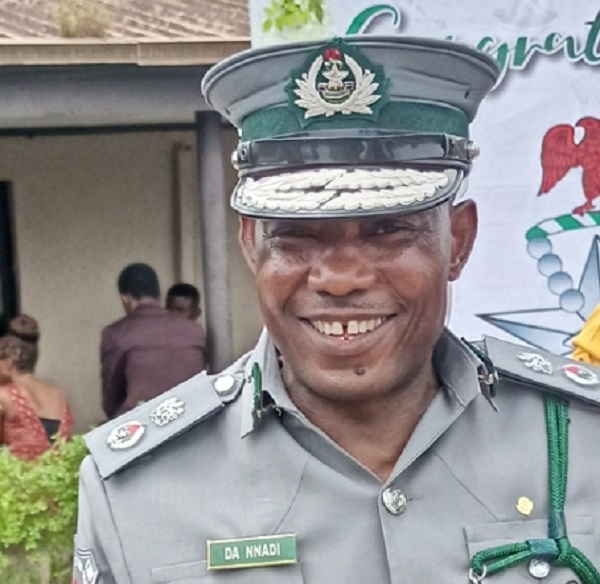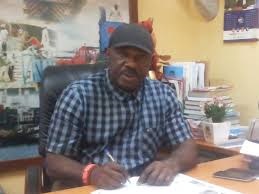Nigeria Should Maximize IMO’s Boss Visit To Nigeria – Ezeoke
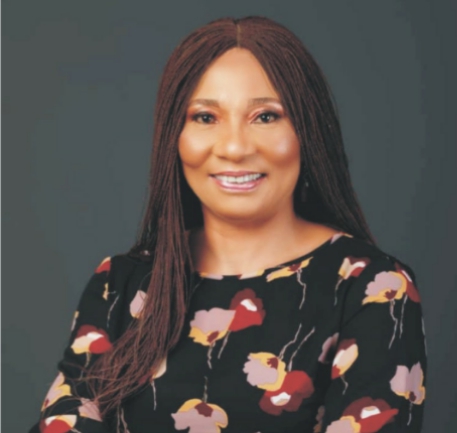
Mrs Eunice Ezeoke is the president of Women’s International Shipping and Trading Association (WISTA)-Nigeria. In this interview with MMS Plus, Mrs Ezeoke, bares her mind on how Nigeria could take advantage of the visit of the scribe and the benefits of the Nigeria International Maritime Summit(NIMS), held recently in Lagos.
Mrs Ezeoke who witnessed the NIMS two days programme, 21-22, November,2022, spoke on a number of issues that bother on the maritime sector. To her, Nigeria must maximize the visit of IMO Secretary General, Kitack Lim to fullest advantage. She spoke on the potentials of the blue economy and posits that there are necessary infrastructure that should be in place for the realization of the fruits of the blue economy. What are her views on carbon emissions, and de-carbonization? Mrs Ezeoke provides answers to all these and many more .She spoke to Frank Odinukaeze and Genevieve Aningo. Excerpts.
What are the take homes from the IMO General Secretary’s visit to Nigeria in honour of the NIMS event?
The event was successful. But one landmark achievement that it has generated is that it has showcased Nigeria and given Nigeria visibility in the international circle of IMO. And going by the word and promise of Mr. Kitack , he has promised that Nigeria would have a center place in IMO . That means more attention would be given to Nigeria. Don’t forget that part of the reason that he came was to showcase and appreciate Nigeria for the landmark achievement of concluding one whole year of maritime operations through the Gulf of Guinea without any incidence of Piracy. The Gulf of Guinea that was notoriously noted and has that reputation of the most violent piracy hub in Africa. Therefore, bringing cargo into Nigeria became expensive and port operations and ship operations became very exorbitant as a result of the “war risk insurance”. The Gulf was now noted as a place for ransom ,where there was no security and even the crew members faced killing. However, the Deep Blue Project that Nigerian Maritime Administration and Safety Agency (NIMASA) launched along with the Nigerian Navy and the Suppression of Piracy and Other Maritime Offences Act( SPOMO ACT) helped in achieving this stride. Recall that previously when they charged pirates to regular court, the matter would fizzle out but with the introduction of the SPOMO Act, when the suspects are caught, they are tried and jailed without wasting of time, and this served as a deterrent to sea robbery in the Gulf. Thus, with the collaboration of the Nigerian Navy, NIMASA, American Coast Guard and other countries , they policed the Gulf and brought piracy to a standstill as I am talking , it has been over one year that no one case of piracy has been recorded in the Gulf of Guinea. As a result of that, Nigeria has started receiving financial assistance and even maritime vessel assistance like the donation of money, items from other countries to sustain the successes that have been recorded in the Gulf in regard to reduction of piracy.
So to that extent, I would say the event was a resounding success. To attract Mr Kitact was a good visibility action on the part of the country. It would also help Nigeria in the contest for the IMO category ‘C’ seat. I suggest we should no longer go for category C. We should go higher because from the look of things, we have transcended from just being category C- a Councilor. We should go for category B or even higher because Nigeria has come a long way.
How does Nigeria sustain the momentum at the Gulf, having received applause from IMO?
We must remain positive and committed. The fact that we have recorded one full year without any piracy in the Gulf of Guinea does not mean we should go home and sleep. One thing about the international community is that once they notice that you are serious and committed and have passion for whatever agenda that you are pursuing they would come to help. Other countries in the Gulf, even in Asia are coming to find out how Nigeria was able to achieve this so they can copy the blueprint of how Nigeria combated piracy.
The American Coast Guard and even other countries are coming in to help Nigeria because they are beginning to notice some level of seriousness in the way we are fighting piracy in the Gulf of Guinea. I believe the achievement in the Gulf of Guinea can be sustained. The only thing is that when we want to do a funfair we go all the way, which is okay because I don’t think Kitack has ever visited Nigeria. We know what we are pursuing; we are pursuing validity and acceptance internationally. In the international community, Nigeria needs to up her game in terms of seriousness because they see her as unserious because we make so much noise with no action. Now, we are matching our noise with action because there is a need for the international community to take us seriously. It is very important for them to see us as people that are focused at driving that ability to a conclusive end, and I believe it is going to be sustainable and Nigeria would achieve a lot in the international maritime community.
Looking at the 2022 NIMS Theme, -Igniting the Blue Economy, do you think it reflects the pertinent needs of the Nigerian maritime industry bearing in mind the infrastructural deficiencies?
Kitack was invited to address specific areas and that is what he did. Whatever is remaining is for us in Nigeria to handle. You don’t go naked in public, if you may want to dance naked in the house. Kitack is an international person and official Nigeria needs to launder her image internationally.
Also, maritime is a mode of the transport chain. The road, rail and air are handled by other ministries though they are interwoven and rely on each other; so addressing the infrastructural deficiencies in the industry may broaden other needs that may involve other agencies other than maritime sector. For me, this blue economy is addressing the international aspect of it because we are not only dealing with Nigeria but operating in the international space. Maritime involves over 90% of whatever trade either in Nigeria or international level. So in picking up a theme, maybe the organizers of NIMS considered this and restricted it to maritime for reasons best known to them.
I think any complaints about the theme is something that can be addressed when our international visitor has gone. Then we come back home and then focus not only on maritime infrastructure but other sector’s infrastructure which the maritime industry depends on.
Talking about the 2050 decarbonisation target by IMO, do you think that is a western target alone, and not a global target, because various countries, especially Africa, lack the capacities to reduce their carbon imprints?
Well, the world is moving forward with or without Nigeria or Africa. I don’t think the world should wait for Nigeria to meet up before they can move forward. This is not peculiar to Nigeria but Africa. The developed world just keeps moving forward and we would be running after them as best as we can. It is not only in de-carbonization that we are lagging behind. The important thing is that they are giving us the template to follow. The pace of the followership depends on the capacity and the ability of the country to follow. So we would just be going at our pace but at least we know where we are going and the IMO target. Nigeria is a signatory to the IMO Decarbonisation target. It is only for us to domesticate it. I know, just like other IMO rules, gradually, we would get there. After all, our crude is a light crude, it’s not even that high. If we can refine our crude locally in Nigeria , we would get there faster than you think. But the problem is that we are not refining our crude. Our refineries are there doing nothing. Every year we hear 50 percent conclusion; every government has a percentage of conclusions, still we are importing fuel.
What is the maritime outlook for 2023 for you ?
We have problems maintaining port infrastructure because they are really decaying in terms of maintenance.
Our ports have expired. We need to address those and it is not IMO that would do it for us. When we master the Gulf of Guinea security aspect then another problem would stir us in the face which is this maintenance of infrastructure, it would expose other areas that were left unaddressed but as I said that would be internal. By the time they start complaining that our ports are decaying maybe that is the time we would invite another person to come and bring it to limelight.




